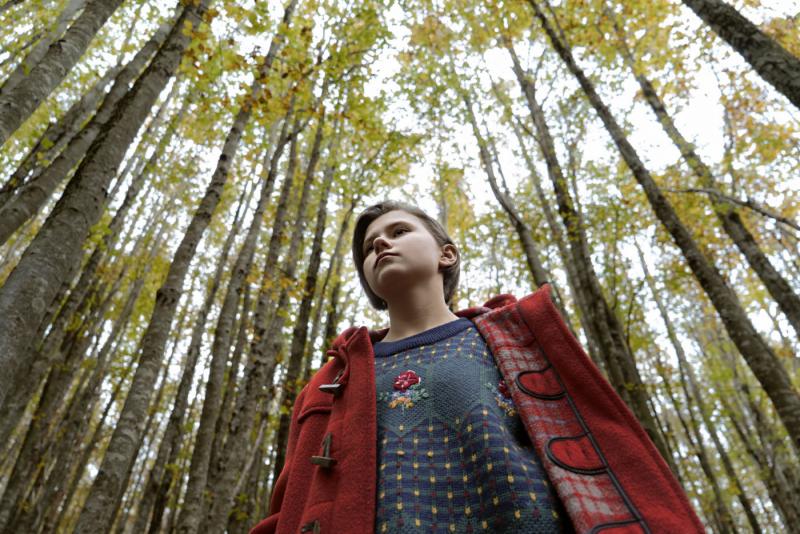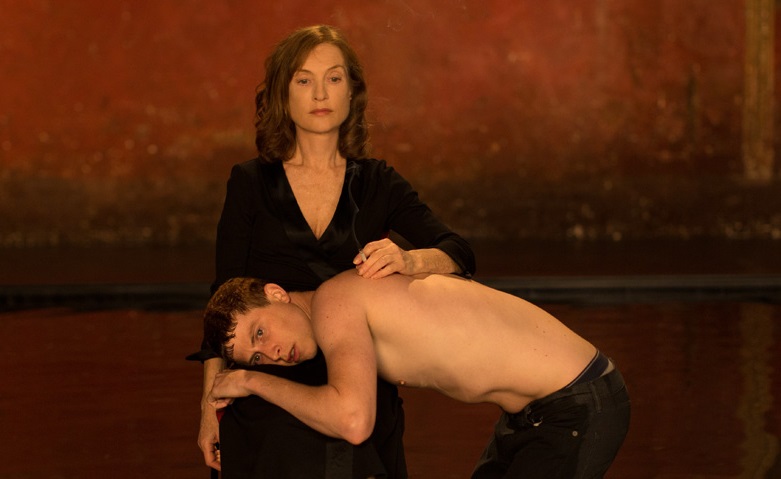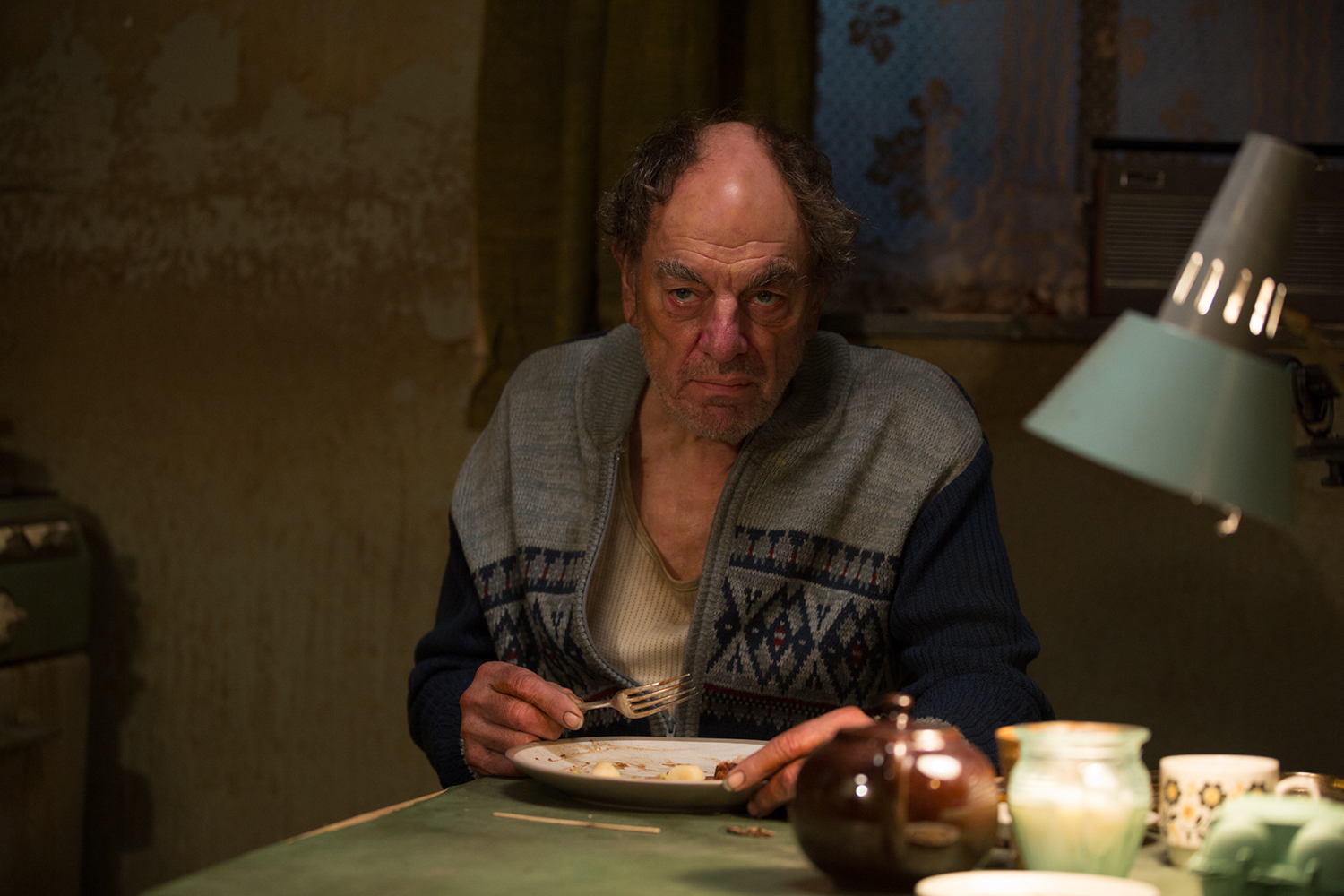Childhood is an inimitable experience – the laws of the world are less certain, imagination and reality meld together, and no event feels fixed. A Sicilian Ghost Story recreates this sensation in the context of real world trauma, producing a unique and sometimes unsettling cinematic experience.
Luna (Julia Jedlikowska, pictured below) is a rather typical 12-year-old girl: precocious, imaginative, and very much infatuated with her classmate Giuseppe. Although they don’t have the same interests, they share something deeper, a comfort and belonging in each other’s company. On the walk home from school, the two dance around their attraction, Luna carrying a love letter for Giuseppe but denying it’s really for him. They’re chased by a dog, share a scooter ride, and he demonstrates his show horse; it’s a perfect day that ends in a kiss. Then, as if by magic, Giuseppe is gone.
Days and weeks pass, and no-one but Luna seems to care that Giuseppe’s not in school. At his house, no-one answers the door; his stone-faced mother stares hauntingly from the window. The adults of the village refuse to answer Luna’s questioning. Always prone to daydreaming, her imagination starts to run wild as she follows his ghost through the puzzle-like woods and deep lakes. Sicilian Ghost Story is dedicated to Giuseppe Di Matteo, an 11-year-old boy kidnapped by the Mafia after his father turned informant. Rather than a straight adaptation of this tragic story, writer/directors Fabio Grassadonia and Antonio Piazza bring a dark, fairytale quality to the film. Luna’s imagination becomes both her guide and her sanctuary as she tries to come to terms with the grim reality, hinting at a deeper, supernatural connection between the two.
Sicilian Ghost Story is dedicated to Giuseppe Di Matteo, an 11-year-old boy kidnapped by the Mafia after his father turned informant. Rather than a straight adaptation of this tragic story, writer/directors Fabio Grassadonia and Antonio Piazza bring a dark, fairytale quality to the film. Luna’s imagination becomes both her guide and her sanctuary as she tries to come to terms with the grim reality, hinting at a deeper, supernatural connection between the two.
It’s an unusual watch: memories are revisited with different outcomes, dream sequences are often presented as reality, and the internal logic is stretched to breaking point. It is, really, how we remember our childhood – we can recollect the feelings, but not always separate the fact from fiction. This makes for a film that is a pleasure to experience but sometimes frustrating to follow.
The cinematography and sound design create a woozy, hallucinogenic experience
It bares a passing resemblance to recent British indie release Pin Cushion. Both have a young female lead inclined to fantasy, but where Pin Cushion is quirky, Sicilian Ghost Story is something more elemental. The characters are at once dwarfed by and connected with the spectacular landscapes of Sicily. Animals are a constant, and countryside literally hisses and rattles around the humans. It’s at times pagan-like: there’s a deeper spiritual connection with nature that lasts longer than the temporary, evil actions of man.
Visually, the film is stunning. The cinematography and sound design create a woozy, hallucinogenic experience. A variety of wide lenses and low angles add a surrealness to Luna’s journey, drawing a clear line between her world and the standard shots deployed for adults. As the camera focuses on her determined vulnerability, there’s an element of Millie Bobby Brown in Julia Jedlikowska’s performance, only emphasised when her head is shaven. It is a complicated and heavy film to lead, and she does so with ease.
While Sicilian Ghost Story offers some interesting narrative devices, powerful visuals and strong performances, it’s too tonally confused to be considered a complete success. It creaks when toeing the line between fantasy and reality, never quite committing to either to the detriment of both. At times, it feels like Pan’s Labyrinth without the visual effects, or Twin Peaks without embracing the surreal – tons of potential, almost realised.
@OwenRichards91
Overleaf: watch the trailer for Sicilian Ghost Story



 Fontaine has filled in that gap by positing an imagined concept that the Louis figure, here named Marvin Bijou – the awkwardness of that surname, translated as “Jewels”, seems horribly ironic for a context that is anything but sparkling – found his path out of that desolate early milieu through theatre. Early encouragement from a sympathetic schoolteacher is fortuitously followed by engagement with an intuitive stage director-coach, who draws Marvin both out of himself and into the Parisian gay scene. Never entirely losing his shyness, his involvement in that culture grows, encouraged by a largely benevolent sugar daddy figure who moves in circles of which the youth could once barely have dreamed.
Fontaine has filled in that gap by positing an imagined concept that the Louis figure, here named Marvin Bijou – the awkwardness of that surname, translated as “Jewels”, seems horribly ironic for a context that is anything but sparkling – found his path out of that desolate early milieu through theatre. Early encouragement from a sympathetic schoolteacher is fortuitously followed by engagement with an intuitive stage director-coach, who draws Marvin both out of himself and into the Parisian gay scene. Never entirely losing his shyness, his involvement in that culture grows, encouraged by a largely benevolent sugar daddy figure who moves in circles of which the youth could once barely have dreamed. Despite his two compelling leads, however, Holness struggles to deliver on the film’s slow-burning and quite lengthy set-up. Indeed, despite its relatively brief 85-minute length, Possum feels more like a short film that’s been stretched than a fully fledged feature. Moreover, its cloying evocations of atmosphere and dread, and its suggestions of imminent jump-scares (few of which, thankfully, materialise), end up far stronger and more memorable than its brief but brutal pay-off.
Despite his two compelling leads, however, Holness struggles to deliver on the film’s slow-burning and quite lengthy set-up. Indeed, despite its relatively brief 85-minute length, Possum feels more like a short film that’s been stretched than a fully fledged feature. Moreover, its cloying evocations of atmosphere and dread, and its suggestions of imminent jump-scares (few of which, thankfully, materialise), end up far stronger and more memorable than its brief but brutal pay-off.



 Sicilian Ghost Story is dedicated to Giuseppe Di Matteo, an 11-year-old boy kidnapped by the Mafia after his father turned informant. Rather than a straight adaptation of this tragic story, writer/directors Fabio Grassadonia and Antonio Piazza bring a dark, fairytale quality to the film. Luna’s imagination becomes both her guide and her sanctuary as she tries to come to terms with the grim reality, hinting at a deeper, supernatural connection between the two.
Sicilian Ghost Story is dedicated to Giuseppe Di Matteo, an 11-year-old boy kidnapped by the Mafia after his father turned informant. Rather than a straight adaptation of this tragic story, writer/directors Fabio Grassadonia and Antonio Piazza bring a dark, fairytale quality to the film. Luna’s imagination becomes both her guide and her sanctuary as she tries to come to terms with the grim reality, hinting at a deeper, supernatural connection between the two.
